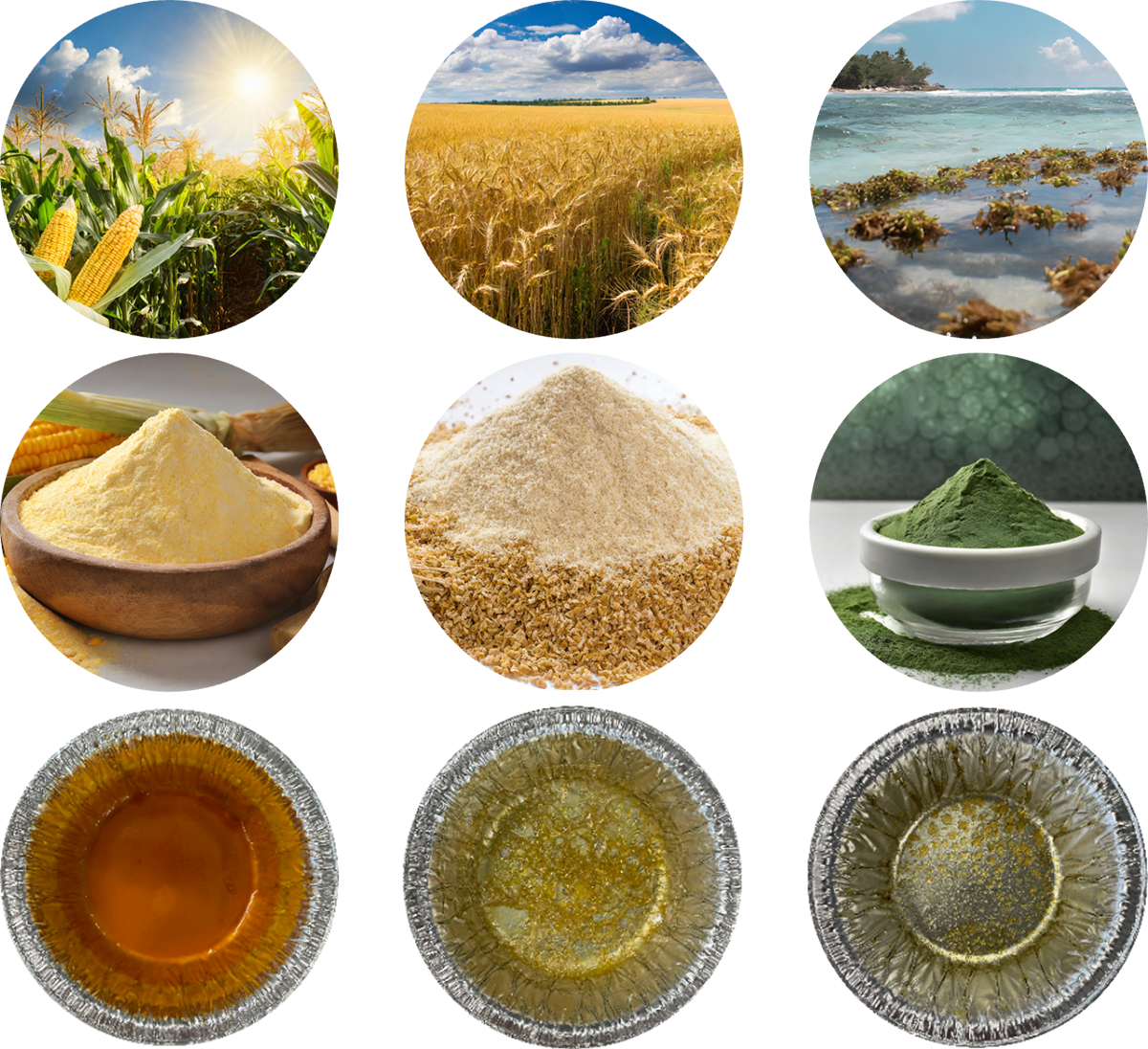Biopolymers from renewable raw materials
Research into the use of food waste and algae for environmentally friendly and efficient bioplastics production, waste minimization and climate mitigation
Project background
The motivation behind this project is to address the growing societal need for more sustainable resource use, as outlined in the zero-waste policy. The availability of crude oil, a key resource for the production of conventional plastics, is steadily decreasing. At the same time, the production and disposal of these plastics contribute significantly to environmental pollution, increasing interest in renewable biopolymers and bioplastics.
Research is increasingly focused on developing renewable and CO2-neutral raw materials to meet the rising demand for environmentally friendly materials. In this context, food waste and by-products, particularly corn gluten meal and wheat gluten, represent promising alternatives. These by-products of the food industry have so far primarily been used as animal feed, but their suitability is limited due to their lack of essential amino acids. Another promising resource is algae. Compared to traditional biomasses, algae have the advantage of being cultivated in controlled environments with defined conditions, enabling a more homogeneous chemical composition. The use of these biomasses does not compete with food production and helps mitigate climate change by absorbing CO2.
Project objective
The main objective of the project is to use food waste and algae as sustainable and efficient alternatives for polymer production. Through precise extraction and purification processes, the foundations for the production of bioplastics are being developed. As part of the research project, the parameters influencing the extraction processes, as well as their effects on the composition of the polymers and their thermal and mechanical properties, will be analyzed. In addition, potential processing technologies for these novel materials will be identified and evaluated.
Project procedure
To achieve the project objectives, a systematic screening of different biomasses, as well as various algae types and species, will be conducted. These will be analyzed in detail for their protein content and composition. Quantitative measurement methods will be developed to determine the amino acid, lipid, and polysaccharide composition, as well as the molecular weight distribution. Various extraction processes will then be evaluated for their suitability in producing biopolymers from the biomass.
Optimal process parameters and their optimization potential will be identified, and the resulting extracts will be comprehensively characterized. The influence of the extraction processes on the composition, as well as the thermal and mechanical properties of the polymers, will be quantified.
Systematic problem-solving and development approaches will be employed to ensure the research project is carried out in a time- and cost-efficient manner. The use of modern design-of-experiments (DoE) methods will enable a significant reduction in the number of experiments required, while maintaining consistently high quality in analyzing the relationships between various parameters and their effects.
Innovation
So far, the production of biopolymers has focused primarily on the use of conventional biomasses such as corn or sugar cane. The utilization of algae and food residues through protein extraction is a largely unexplored area. The project aims to close this gap by adapting existing methods from the processing of other biomasses and products.
The aim is to develop a climate-friendly alternative to conventional plastics that can be used in particular in the field of packaging or disposable products. This would make a significant contribution to reducing the effects of climate change by developing more resource-efficient and environmentally friendly material options.
Project lead
Project staff
T +49 (0) 8031 / 805 - 2985 jan-luka.maurischat[at]th-rosenheim.de


